Faculty Bookshelf
-
Books
Slavery and Religious Conversion in Portugal's Indian Empire, 1500-1700, Stephanie Hassell (2025)

In the sixteenth and seventeenth centuries, enslaved Africans and Asians were part of the larger Portuguese project of building and maintaining a Catholic empire in the Indian Ocean. Both the Church and the Crown influenced the owner-slave relationship across households, the most basic organizational unit of power over the populace. Responsible for their enslaved dependents’ conversion to Catholicism, slaveholders became religious stewards whose spiritual duties toward their slaves helped expand the Christian population. This converted population was part of the imperial security apparatus, which conceptualized enslaved Catholics as loyal allies against neighboring Muslim states. They became members of the broader colonial community in which Catholicism also conveyed rights, enabled agency, and provoked household struggles between owners and slaves. Thus, the making of a Catholic empire was a contested process tied to the complex relationships between enslaved individuals, their enslavers, and the Church.
Ladies-in-Waiting In Medieval England, Caroline Dunn (2025)
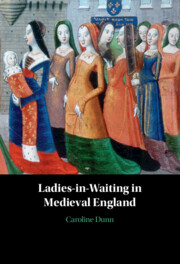
Ladies-in-Waiting in Medieval England examines female attendants who served queens and aristocratic women during the late medieval period. Using a unique set of primary source based statistics, Caroline Dunn reveals that the lady-in-waiting was far more than a pretty girl sewing in the queen's chamber while seeking to catch the eye of an eligible bachelor. Ladies-in-waiting witnessed major historical events of the era and were sophisticated players who earned significant rewards. They had both family and personal interests to advance – through employment they linked kin and court, and through marriage they built bridges between families. Whether royal or aristocratic, ladies-in-waiting worked within gendered spaces, building female-dominated social networks, while also operating within a masculine milieu that offered courtiers of both sexes access to power. Working from a range of sources wider than the subjective anecdote, Dunn presents the first scholarly treatment of medieval English ladies-in-waiting.
The Roots of Flower City: Horticulture, Empire, and the Remaking of Rochester, New York, Camden Burd
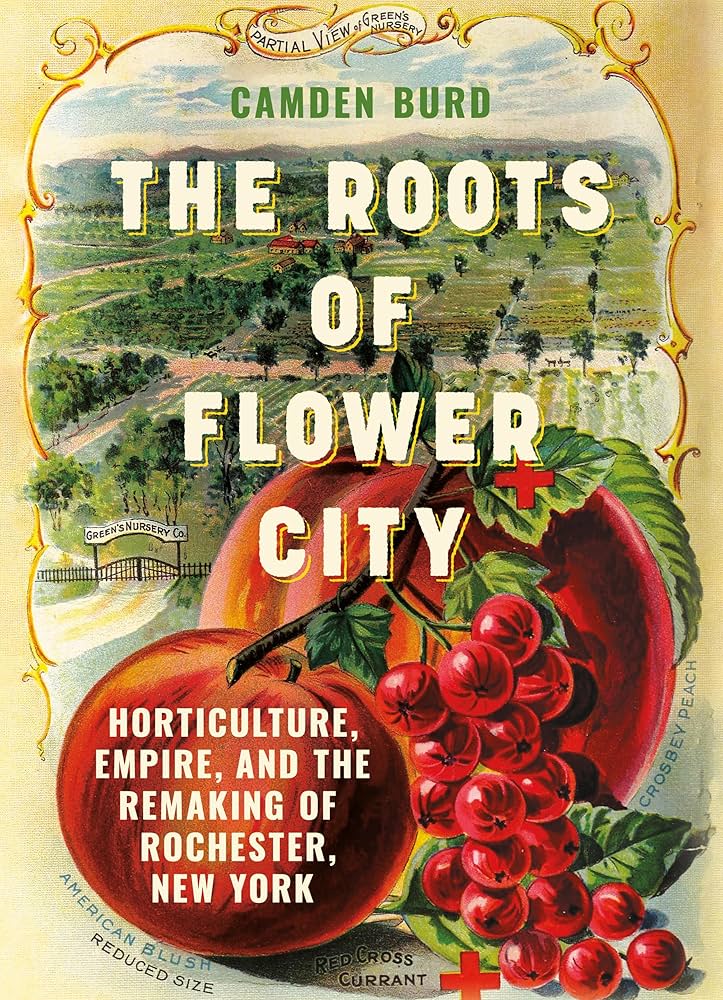
In The Roots of Flower City, Camden Burd explores the economic and ecological significance of Rochester plant nurserymen over the course of the nineteenth century. As the first boomtown in the United States, Rochester was an embodiment of nineteenth-century market economies and social reform movements. Connected to the eastern seaboard by the Erie Canal, the city's unique economic, cultural, and environmental conditions fostered and sustained a vast and influential commercial plant nursery industry that attracted the nation's most prominent horticulturists and nurserymen. Rochester-area nurserymen built parks and rural cemeteries, landscaped homes and schools, and promoted horticultural pursuits regionally and nationally. As their influence grew, many of these horticultural entrepreneurs developed into the city's elite and played a leading role in shaping Rochester's economic, social, and physical landscape. Most significantly, nurserymen enthusiastically participated in the American imperial project, selling and distributing fruit, shade, and ornamental trees, shrubs, and flowers across the continent, transforming landscapes and ecologies far beyond New York.
How the Country House Became English, Stephanie Barczewski (2023)
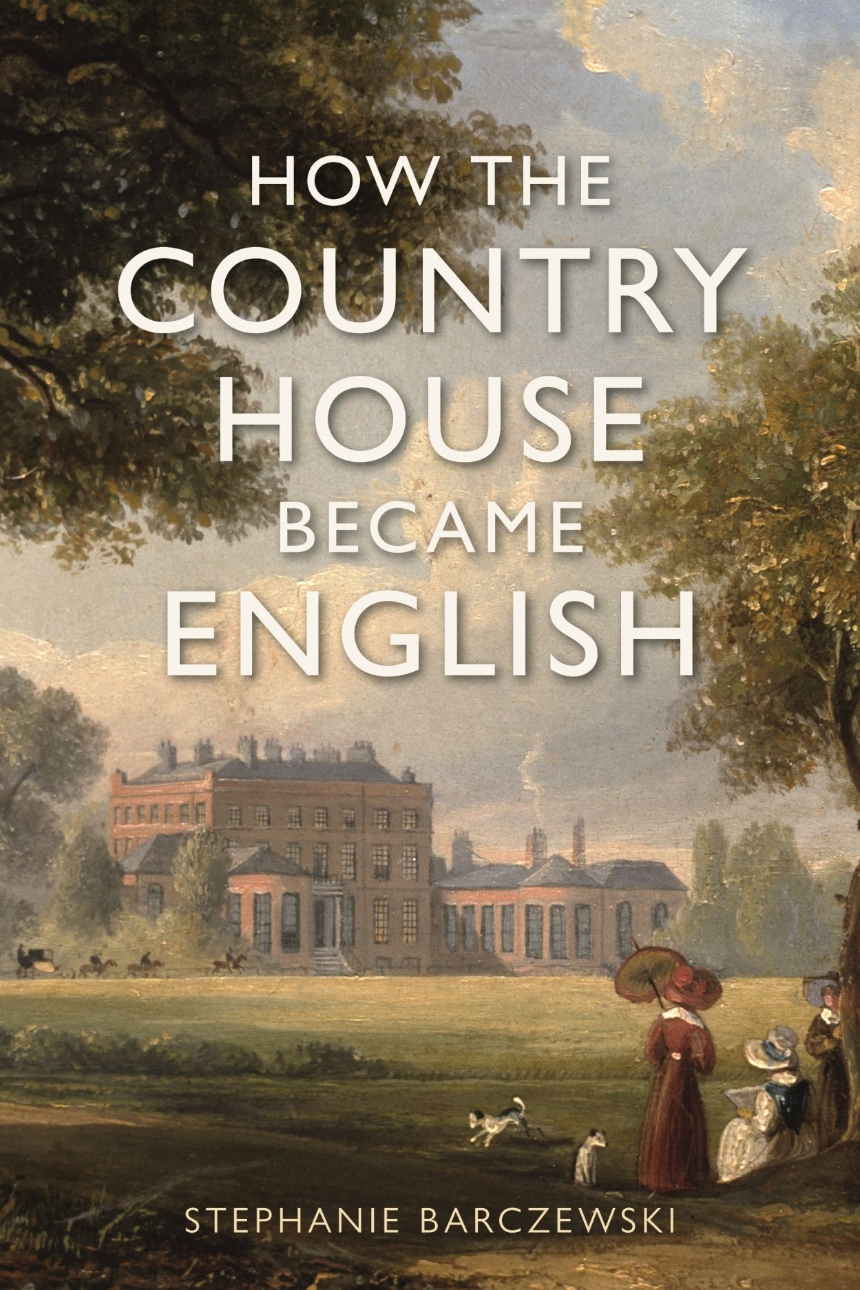
Country houses are quintessentially English, not only architecturally but also in that they embody national values of continuity and insularity. The English country house, however, has more often been the site of violent disruption than continuous peace. So how is it that the country how came to represent an uncomplicated, nostalgic vision of English history? This book explores the evolution of the country house, beginning with the Reformation and Civil War, and shows how the political events of the eighteenth century, which culminated in the reaction against the French Revolution, led to country houses being recast as symbols of England’s political stability.
Be Our Guest: Guestworkers in Tourism and Hospitality in the United States, Billy Terry (2022)
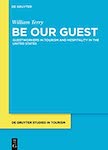
Be Our Guest explores the constellation of political and economic factors that explain how so many tourism-dependent areas of the United States have developed a dependency on temporary foreign workforces. Taking a holistic approach, special emphasis is placed on the economic histories of these areas and shifting patterns of employment, seasonality, gentrification, and related housing shortages.
Dismal Freedom: A History of the Maroons of the Great Dismal Swamp, J. Brent Morris (2022)
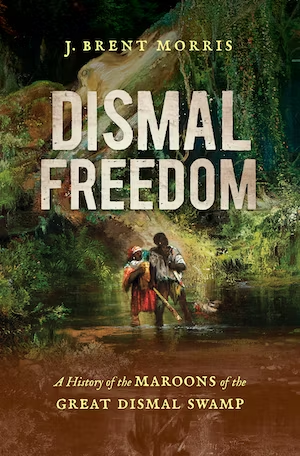
Dismal Freedom examines the lives of maroons (self-emancipated men, women, and children) in the liminal world between slavery and freedom along the North Carolina/Virginia border. This book is a close analysis of the communities and individual lives of thousands men and women who made the Great Dismal Swamp their free home and sanctuary, and who played an outsized role in undermining slavery and its supporting ideologies from the seventeenth century through the Civil War. It offers a fresh reassessment of resistance to enslavement, scholars' understanding of marronage and freedom in North America, and the uses of new technology and interdisciplinarity in historical scholarship.
The Station Agent and the American Railroad Experience, H. Roger Grant (2022)
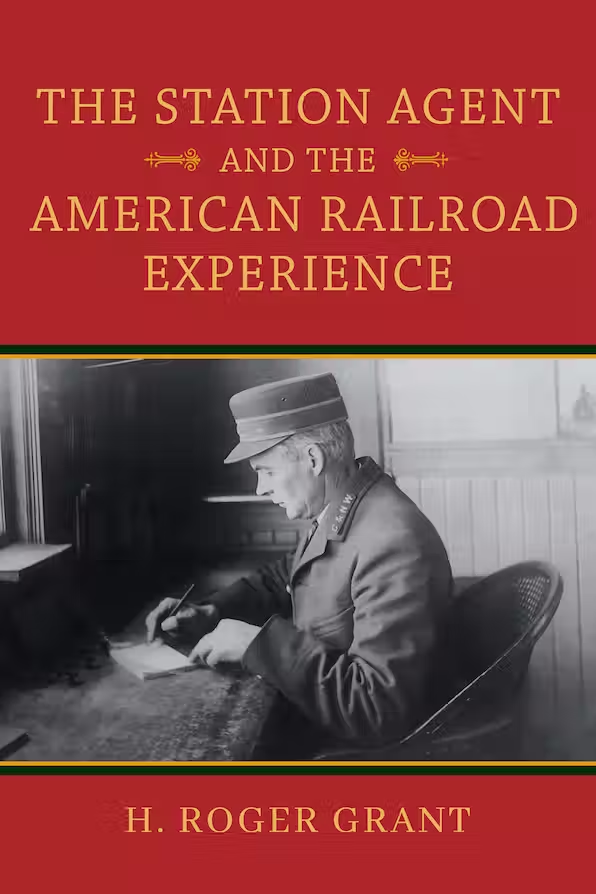
This study describes how railroad station agents for nearly 150 years served as frontline workers that kept the nation's railroad network running. Most agents were men, but a small number of women who mastered Morse Code also became as agents.
Bonds of Empire: The English Origins of Slave Law in South Carolina and British Plantation America, 1660-1783, Lee B. Wilson (2021)
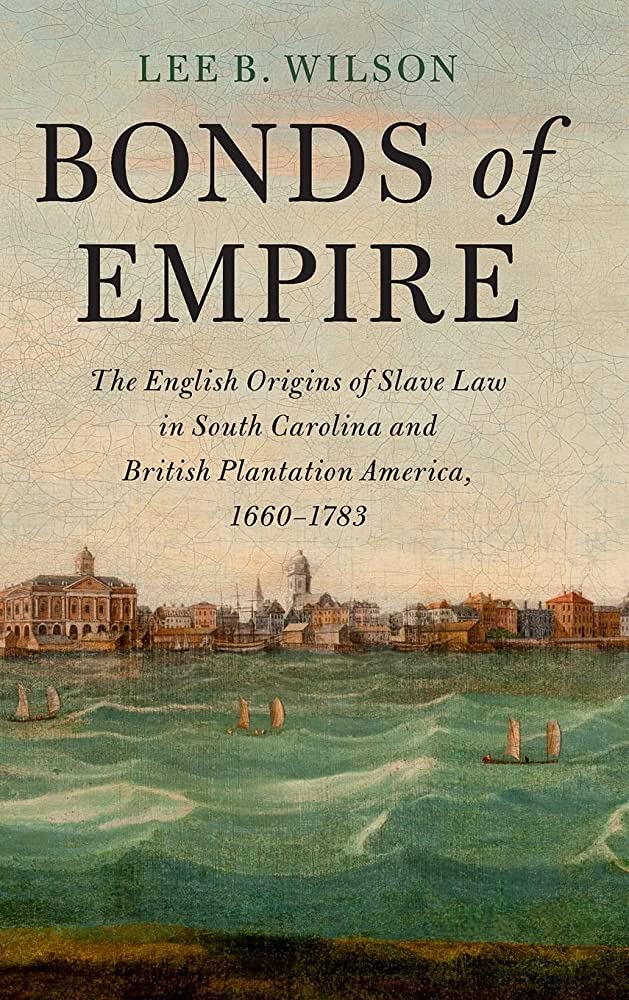
Bonds of Empire presents an account of slave law that is entirely new, one in which English law imbued plantation slavery with its staying power even as it insulated slave owners from contemplating the moral implications of owning human beings. Emphasizing practice rather than proscription, the book follows South Carolina colonists as they used English law to maximize the value of the people they treated as property. It also places their activities in a larger Atlantic context, attending in particular to Jamaica and other Caribbean colonies. Doing so reveals that most daily legal practices surrounding slave ownership were derived from English law: colonists categorized slaves as property using English legal terms, they bought and sold slaves with printed English legal forms, and they followed English legal procedures as they litigated over enslaved people in court. Although scholars tend to think of American slave law as a legal aberration, Bonds of Empire ultimately shows that plantation slavery and the laws that governed it were not beyond the pale of English imperial legal history; they were yet another invidious manifestation of English law's protean potential.
Justice Deferred: Race and the Supreme Court, Orville Vernon Burton, (2021)
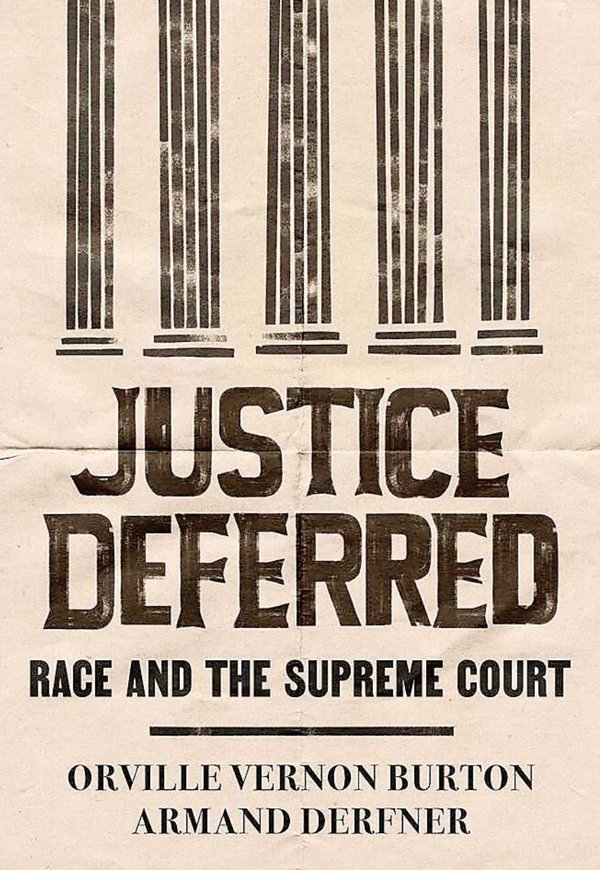
Co-authored with Armand Derfner, tells story of race in U.S. through lens of Supreme Court. Deemed “authoritative and highly readable” by reviewer Randall Kennedy of Harvard University Law School in The Nation. The book has been featured at sessions of the 2021 Social Science History Association and the 2022 Midwestern Political Science Association, the plenary session of the 2022 Association for the Study of African American Life and History, and the 2023 meeting of the American Historical Association, and is scheduled for sessions at the 2023 upcoming the Organization of American Historians, and the the Southern Historical Association.
A Mighty Fine Road: A History of the Chicago, Rock Island & Pacific Railroad Company, H. Roger Grant (2020)
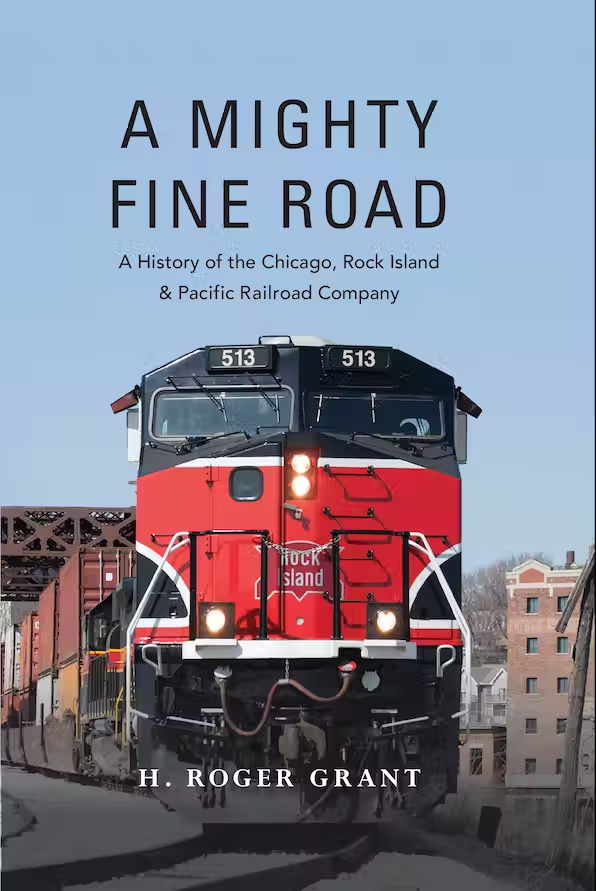
This work covers one of America's most important railroads from its earliest days crossing Illinois and the Mississippi River to its ultimate demise in the 1980s. Its history is full of triumphs and disappointments, including the disastrous control by the Moore-Reid Syndicate during the formative years of the 20th century.
Transportation and the American People, H. Roger Grant (2019)
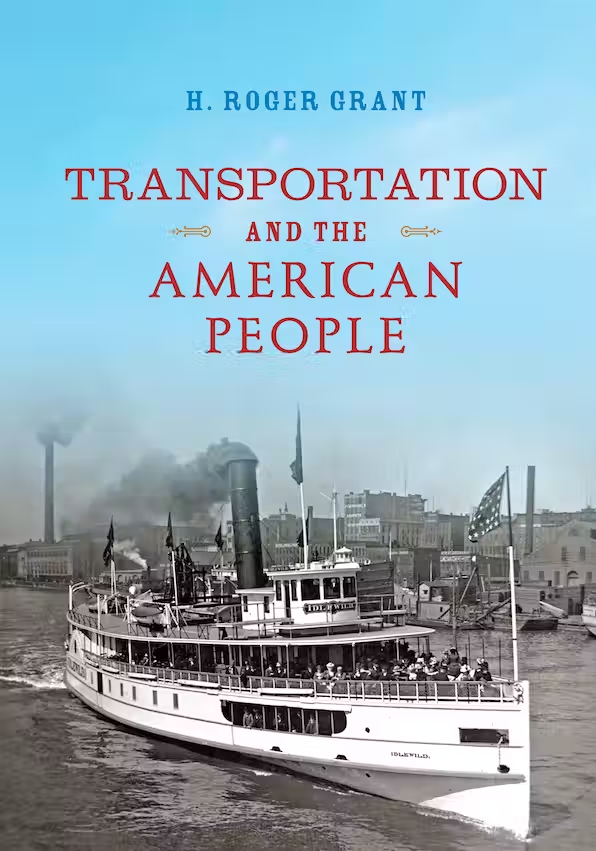
This book explores the love-hate relationship between the public and various modes of transportation. Whether a stagecoach, canal boat, steamboat, train, bus, or airplane, travelers demanded faster schedules, enhanced comfort, greater safety, and lower fares.
Policing 'Bengali Terrorism' in India and the World: Imperial Intelligence and Revolutionary Nationalism, 1905-1939, Michael Silvestri (2019)
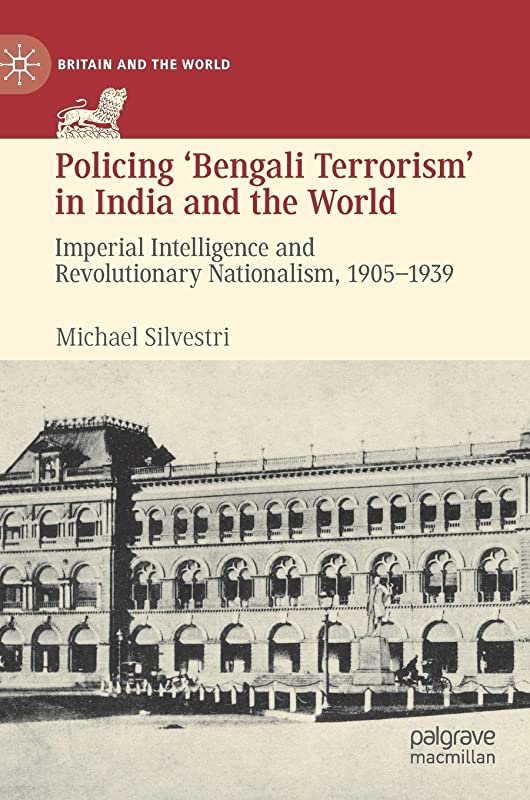
"Policing Bengali Terrorism" examines the development of imperial intelligence and policing directed against Indian revolutionaries from the first decade of the twentieth century through the beginning of the Second World War. Colonial anxieties about the 'Bengali terrorist' led to the growth of an extensive intelligence apparatus within Bengal. This intelligence expertise was in turn applied globally both to the policing of Bengali revolutionaries outside India and to other anti-colonial movements which threatened the empire. The book focuses not only on British intelligence officers, but also on their interactions with the Indian officers and informants who played a vital role in colonial intelligence work, as well as the perspectives of revolutionaries and their allies, ranging from elite anti-colonial activists to subaltern maritime workers.
John W. Barriger III: Railroad Legend, H. Roger Grant (2018)
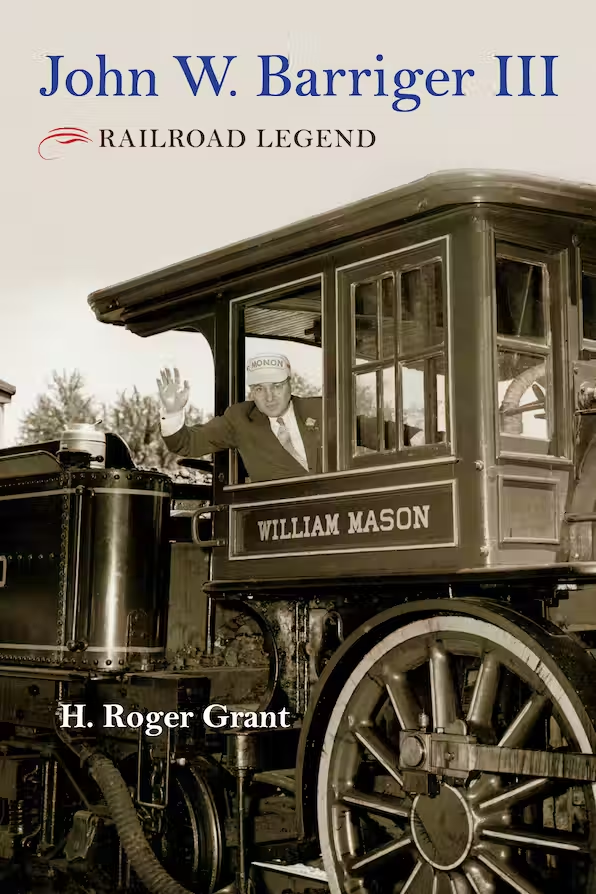
John W. Barriger III emerged as one of the nation's greatest railroaders in the 20th century. During his career he achieved leadership roles at the Monon, Pittsburgh & Lake Erie, Missouri-Kansas-Texas, and Boston & Maine railroads. His capacity to save railroad companies imperil earned him the nickname of "doctor of sick railroads.".
The Age of Lincoln, Orville Vernon Burton (2017)
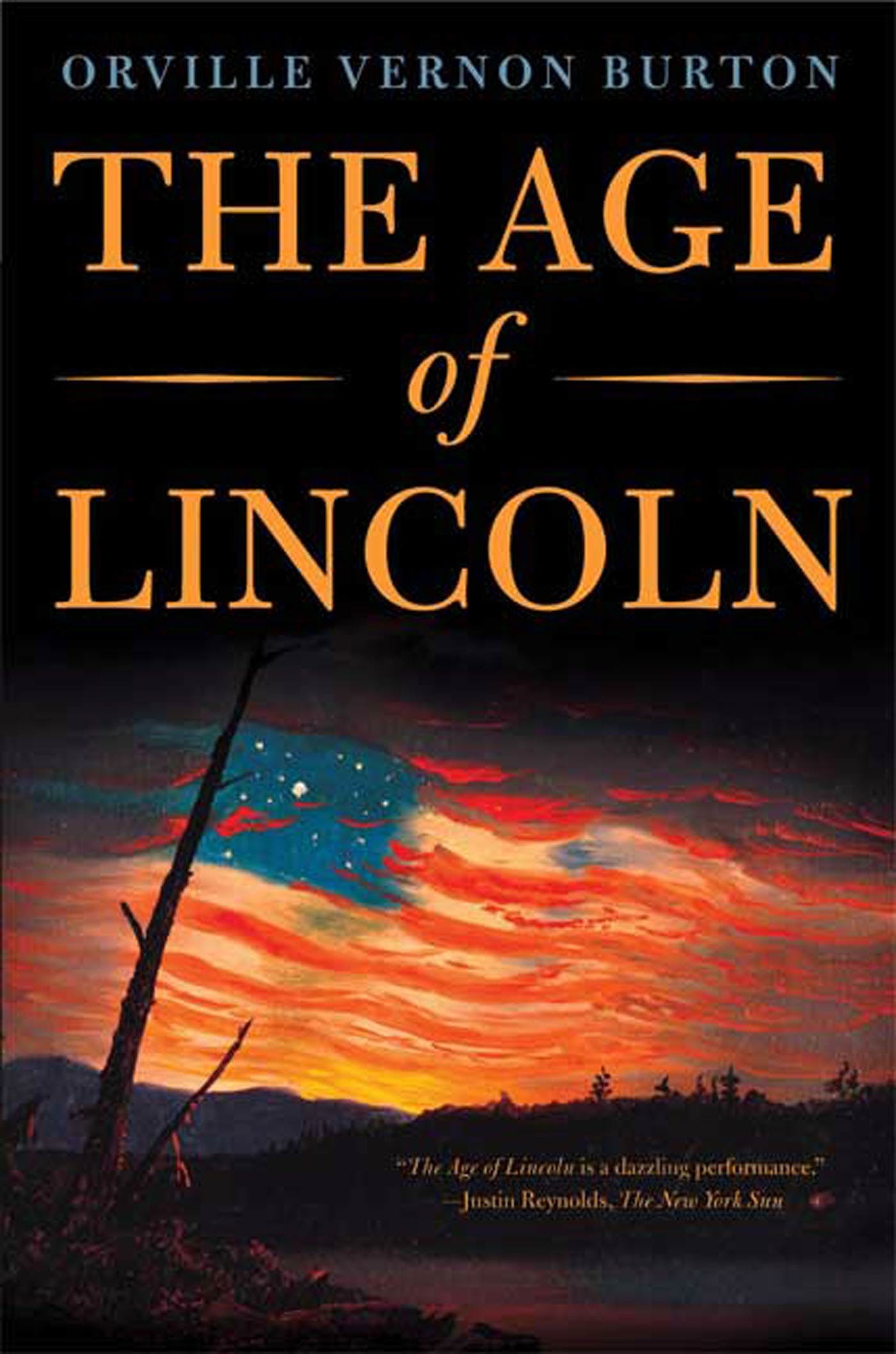
Lincoln is the fulcrum to explain the coming of the Civil War and Reconstruction, aftermath & influence. Won the Chicago Tribune Heartland Literary Award for Nonfiction and was selected for Book of the Month Club, History Book Club, and Military Book Club. One reviewer proclaimed, “If the Civil War era was America's 'Iliad,' then historian Orville Vernon Burton is our latest Homer.” The book was featured at sessions of the annual meetings of the Association for the Study of African American Life and History, the Social Science History Association, and the Southern Intellectual History Circle; the latter was the basis for a forum published in The Journal of the Historical Society.
Hill Fights: The First Battle of Khe Sanh, 1967, Rod Andrew (2017)
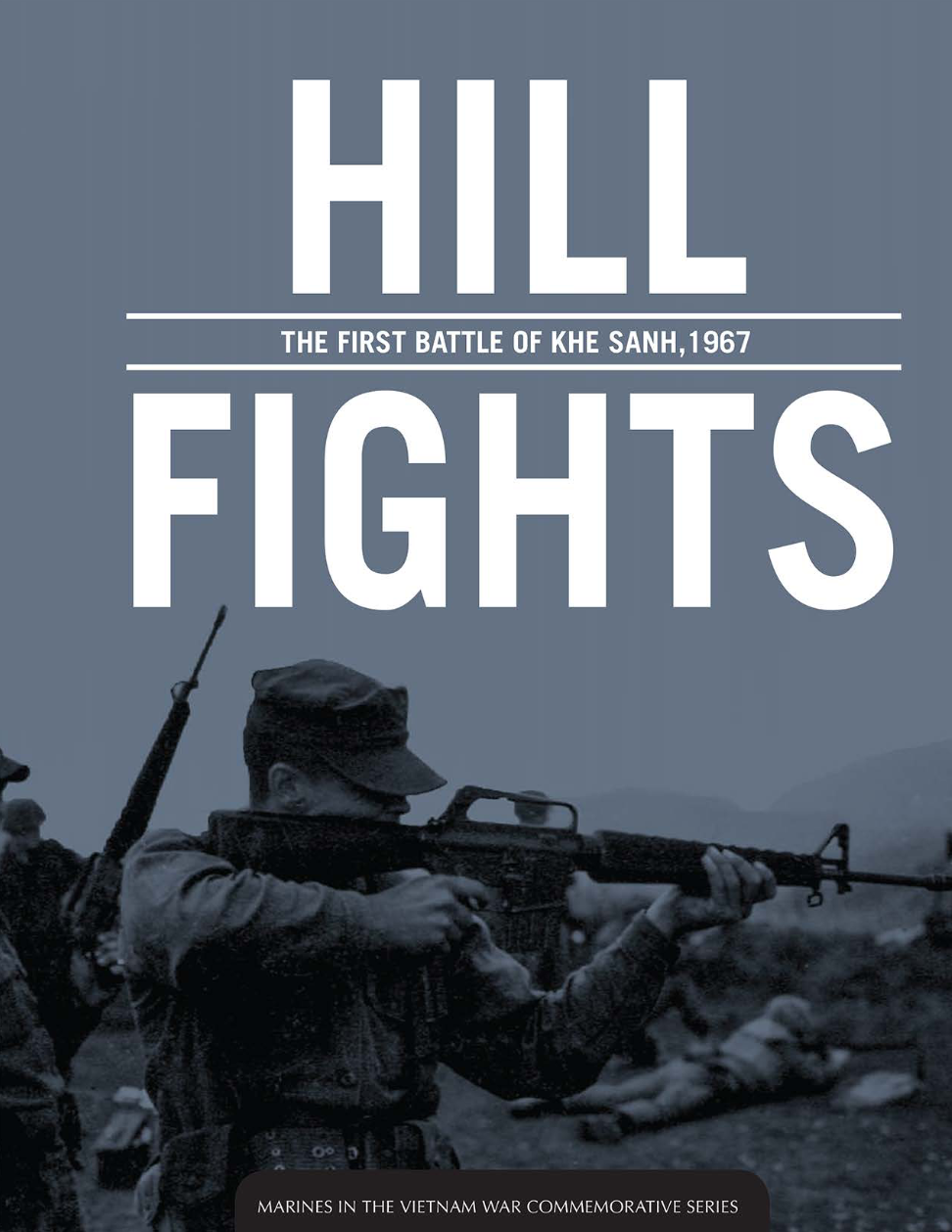
This book is the Marine Corps' latest "official history" of the extremely fierce fighting between U.S. Marines and the North Vietnamese Army in 1967, the year before the famous "siege" of Khe Sanh in 1968. It highlights the tension between General Westmoreland's strategy of attrition and the Marines' preference for counterinsurgency operations, the tactical skill and determination of the opposing forces, and the Marines' ability to take and hold ground using conventional tactics. It was written when the author was serving as a colonel in the Marine Corps Reserve and as the officer-in-charge of the Field History Branch of Marine Corps History Division.
Kemalist Turkey and the Middle East International Relations in the Interwar Period, Amit Bein, (2017)
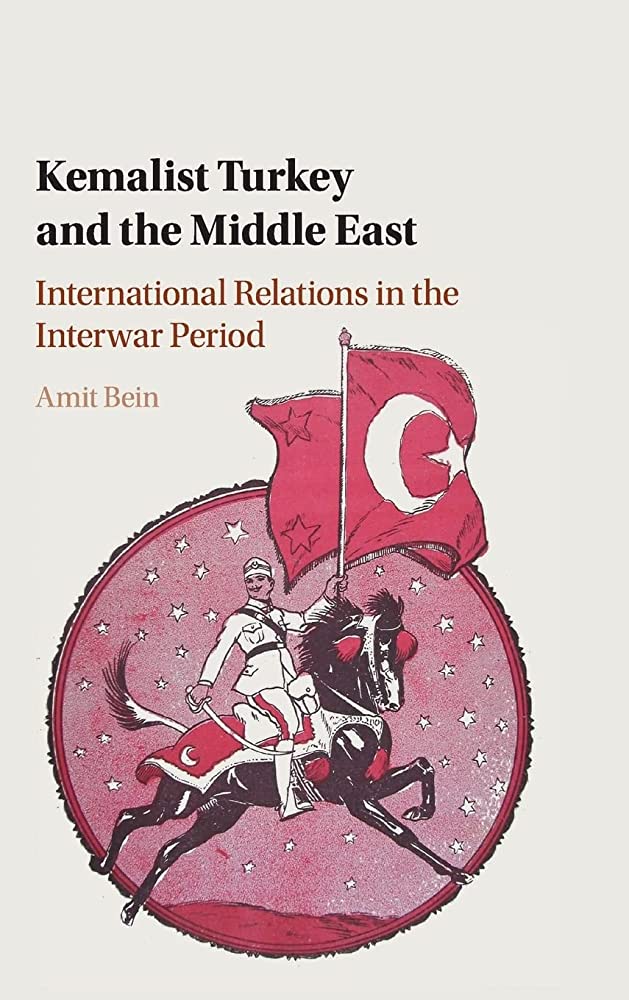
Long assumed to be a period of deliberate disengagement and ruptured ties between Turkey and its neighbors, Amit Bein instead argues that in the volatile 1930s, Turkey was in fact perceived as taking steps towards increasing its regional prominence. Bein examines the unstable situation along Turkey's Middle Eastern borders, the bilateral diplomatic relations Ankara established with fledgling governments in the region, grand plans for transforming Turkey into a major transit hub for Middle Eastern and Eurasian transportation and trade, and Ankara's effort to enhance its image as a model for modernization of non-Western societies. Through this, he offers a fresh, enlightening perspective on the Kemalist legacy that still resonates in the modern politics of the region today.
The Life and Times of General Andrew Pickens: Revolutionary War Hero, American Founder, Rod Andrew (2017)
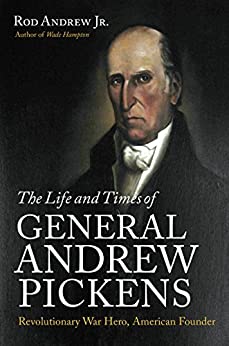
This book traces the life of the stern and often enigmatic Andrew Pickens. Pickens was a backcountry merchant and local justice of the peace; Revolutionary War general and military hero who fought in the Carolina and Georgia backcountry; congressman; federal treaty commissioner with Native Americans; and slaveholder. Pickens was a morally strict and devout "Old Light" Presbyterian whose outlook influenced his approach to warfare, his frustrated attempts to secure just treatment of the Indians, and his complicated relationship to slavery.
Electric Interurbans and the American People, H. Roger Grant (2016)
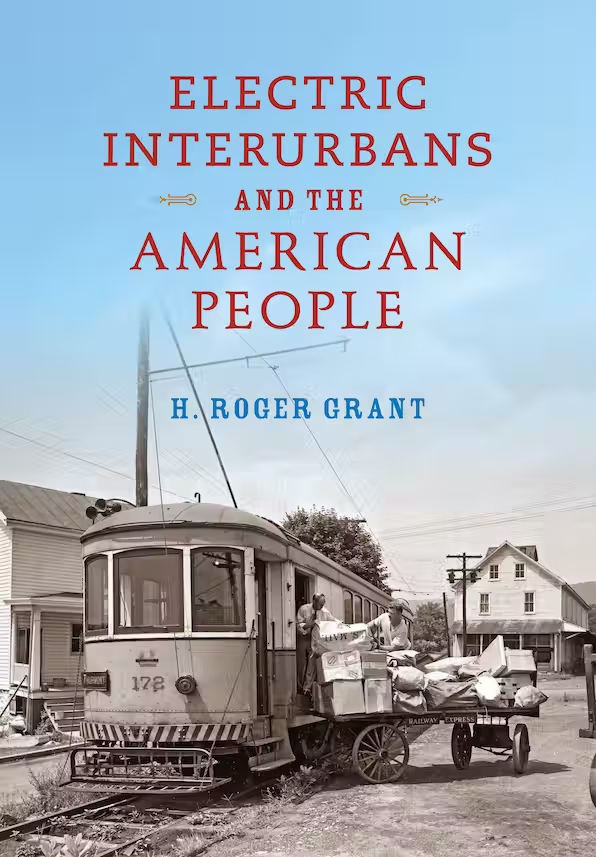
This social history of electric railroads explores the relationship between people and these mostly short-lived forms of intercity travel, dating largely from the 1900s to the 1930s. These roads were designed to assist commuters, farmers, salesmen, shoppers, and pleasure seekers with convenient short-distance travel.
Heroic Failure and the British, Stephanie Barczewski, (2016)
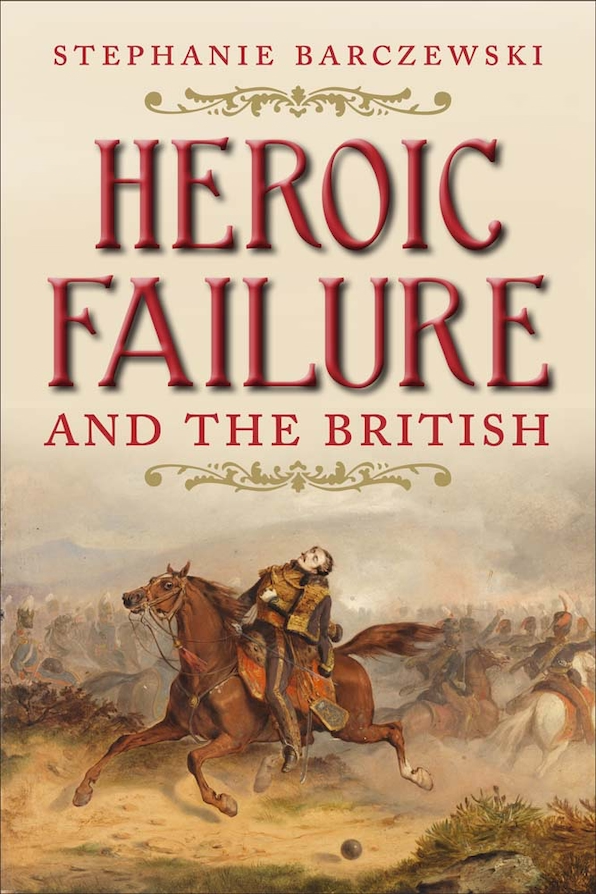
From the Charge of the Light Brigade to Scott of the Antarctic and beyond, it seems as if glorious disaster and valiant defeat have been essential aspects of the British national character for the past two centuries. In this fascinating book, historian Stephanie Barczewski argues that Britain's embrace of heroic failure initially helped to gloss over the moral ambiguities of imperial expansion. Later, it became a strategy for coming to terms with diminishment and loss.
Country Houses and the British Empire, 1700-1930, Stephanie Barczewski, (2014)
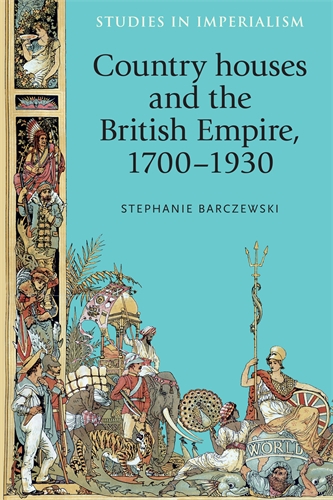
Country houses and the British empire, 1700-1930 assesses the economic and cultural links between country houses and the Empire between the eighteenth and twentieth centuries. Using sources from over fifty British and Irish archives, it enables readers to better understand the impact of the empire upon the British metropolis by showing both the geographical variations and its different cultural manifestations.
Britain Since 1688: A Nation in the World, Michael Silvestri and Stephanie Barczewski et. al., (2014)
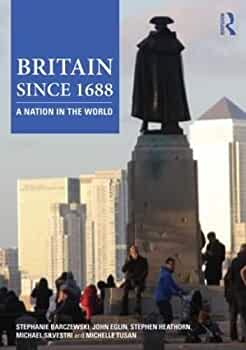
Now in its second edition, "Britain Since 1688" is an accessible and comprehensive introduction to British History from 1688 to the present day. Chronological in structure yet thematic in approach, the book guides the reader through major events in British history from the Glorious Revolution of 1688, offering extensive coverage of the British Empire and continuing through to recent events such as Britain's exit from the European Union. Sidebars on themes such as race, immigration, religion, sexuality, the presence of empire and the experience of warfare are carried across chapters to offer current and relevant interpretations of British history.
Get the book
Oberlin, Hotbed of Abolitionism: College, Community, and the Fight for Freedom and Equality in Antebellum America, J. Brent Morris (2014)
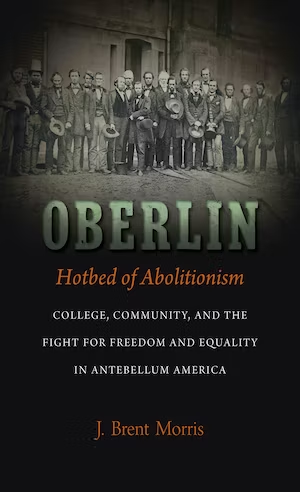
Oberlin, Hotbed of Abolitionism establishes this "hotbed of abolitionism" as the core of the antislavery movement in the West and as one of the most influential reform groups in antebellum America. As the first college to admit men and women of all races, and with a faculty and community comprised of outspoken abolitionists, Oberlin supported a cadre of activist missionaries devoted to emancipation, even if that was through unconventional methods or via an abandonment of strict ideological consistency. Their philosophy was a color-blind composite of various schools of antislavery thought aimed at supporting the best hope of success. Though historians have embraced Oberlin as a potent symbol of egalitarianism, radicalism, and religious zeal, this book is the first to portray the complete history behind this iconic antislavery symbol.
Cinema and Society in the British Empire, 1895-1940, James Burns (2013)
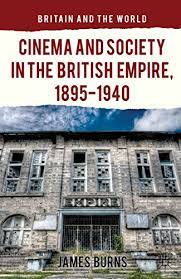
By 1940 going to the movies was the most popular form of public leisure in Britain's empire. This book explores the social and cultural impact of the movies in colonial societies in the early cinema age.
A History of Sub-Saharan Africa, James Burns (2013)
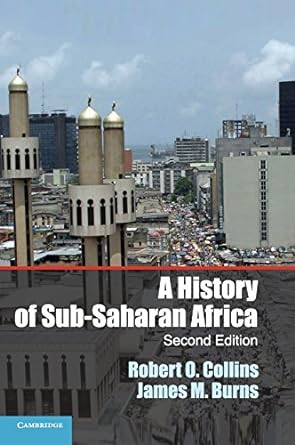
The second edition of A History of Sub-Saharan Africa continues to provide an accessible introduction to the continent's history for students and general readers. The authors employ a thematic approach to their subject, focusing on how the environment has shaped the societies and cultures of the African peoples. The text demonstrates how the geography, climate, and geology of Africa influenced the rise of states and empires, the emergence of the trans-Atlantic slave trade, the European conquest, and the creation of independent African nations. Yet the book maintains a focus on the peoples whose creative energies built unique communities and traditions within the challenging context of the Africa landmass. In the process of reconstructing this continent's rich history, the authors analyze the contentious scholarly debates that have emerged out of this field. The book is illustrated with photographs, maps, and sidebars that feature the salient points on either side of the debates.
Stolen Women in Medieval England: Rape, Abduction, and Adultery, 1100-1500, Caroline Dunn (2012)
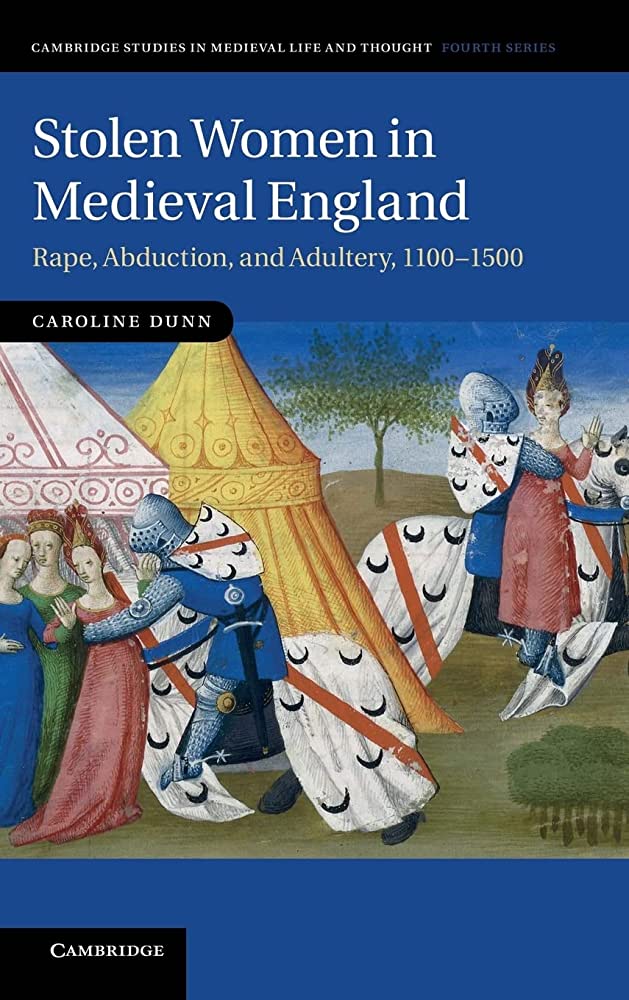
This study of illicit sexuality in medieval England explores links between marriage and sex, law and disorder, and property and power. Some medieval Englishwomen endured rape or were kidnapped for forced marriages, yet most ravished women were married and many 'wife-thefts' were not forced kidnappings but cases of adultery fictitiously framed as abduction by abandoned husbands. In pursuing the themes of illicit sexuality and non-normative marital practices, this work analyses the nuances of the key Latin term raptus and the three overlapping offences that it could denote: rape, abduction and adultery. This investigation broadens our understanding of the role of women in the legal system; provides a means for analyzing male control over female bodies, sexuality and access to the courts; and reveals ways in which female agency could, on occasion, maneuver around such controls.
Ottoman Ulema, Turkish Republic Agents of Change and Guardians of Tradition, Amit Bein (2011)
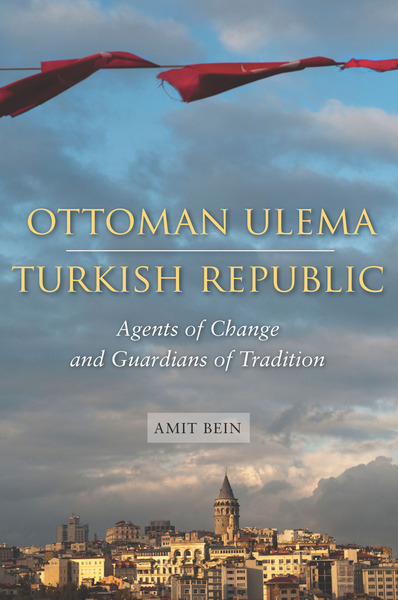
To better understand the diverse inheritance of Islamic movements in present-day Turkey, we must take a closer look at the religious establishment, the ulema, during the first half of the twentieth century. During the closing years of the Ottoman Empire and the early decades of the Republic of Turkey, the spread of secularist and anti-religious ideas had a major impact on the views and political leanings of the ulema. This book explores the intellectual debates and political movements of the religious establishment during this time.
Ireland and India: Nationalism, Empire and Memory, Michael Silvestri (2009)
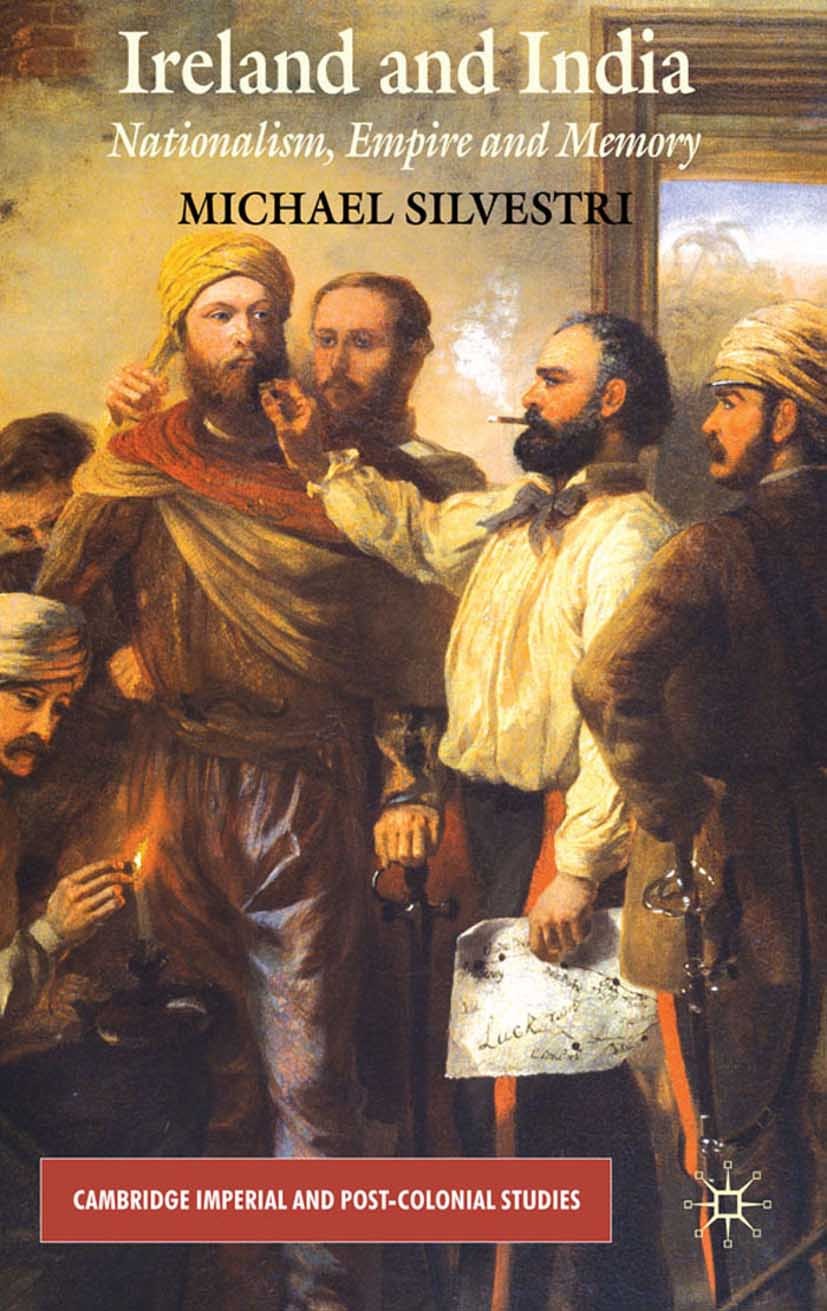
"Ireland and India" examines the imaginative dimension of Irish-Indian imperial connections in the late nineteenth and twentieth centuries by analyzing the relationships between Irish and Indian nationalists, the construction of Irishmen as British imperial heroes, and the commemoration of the mutiny of a regiment of Irish soldiers in India. The book illustrates the historical complexities of Irish imperial identities and explores the impact and relevance of its imperial past for Irish society today.
U.S. Marines in Battle: An Nasiriyah, 23 March-2 April 2003, Rod Andrew (2009)

As the first major battle for U.S. forces during the 2003 invasion of Iraq, An Nasiriyah was also American troops' first experience with irregular Iraqi forces who violated the laws of war by feigning surrender and using women and children as human shields. Though suffering casualties due to a tragic friendly fire incident, Marines of "Task Force Tarawa" defeated the Iraqi forces, cleared a vital route of advance for follow-on forces, and contributed to the rescue of Army private Jessica Lynch who had been captured days earlier. This book was written when the author was serving as a Marine Corps Reserve officer in Marine Corps History Division.
Antarctic Destinies: Scott, Shackleton, and the Changing Face of Heroism, Stephanie Barczewski, (2008)
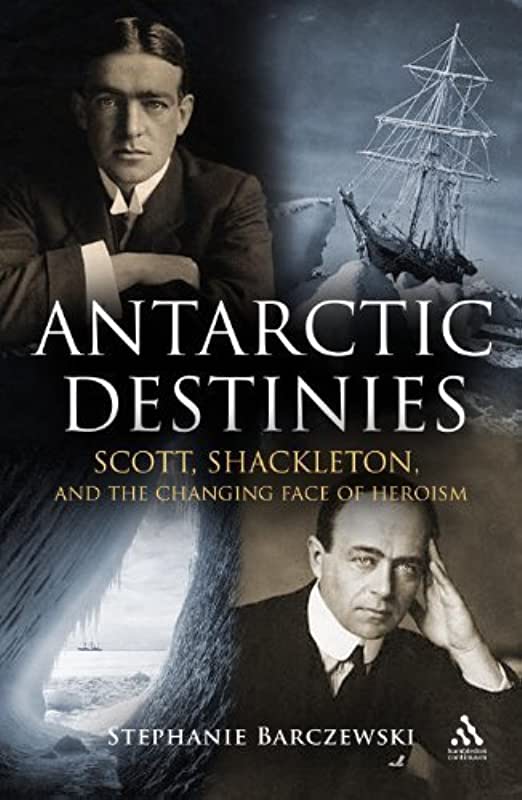
This book covers the two most famous expeditions of the heroic age of Antarctic exploration, Robert Falcon Scott's Terra Nova expedition of 1910-12 and Ernest Shackleton's Endurance expedition of 1914-16. Today, Scott and Shackleton occupy very different places in the pantheon of British heroes. Stephanie Barczewski explores the evolution of their reputations, and finds it has little to do with new discoveries regarding their lives and characters, but far more to do with changes in conceptions of heroism in Britain and the United States.
Wade Hampton: Confederate Warrior to Southern Redeemer, Rod Andrew (2008)
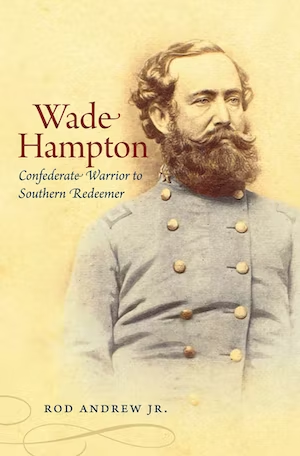
Hampton was a very capable cavalry commander in Robert E. Lee's army who suffered devastating losses in his family and personal life, especially during the war. This book traces his critical role during Reconstruction as a conservative white leader, governor, U.S. senator, and "Redeemer;" his heroic image in the minds of white southerners; and his positions and apparent contradictions on race and the roles of African Americans. The author argues that Hampton's tragic past explains how her emerged in his own day as a larger-than-life symbol of both national reconciliation and southern defiance.
Long Gray Lines: The Southern Military School Tradition, 1839-1915, Rod Andrew (2001)
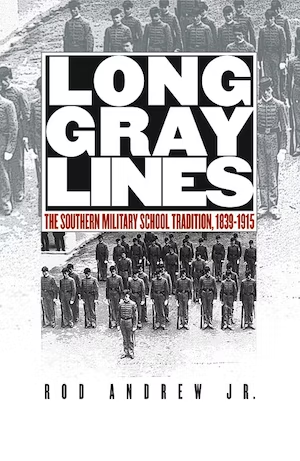
This book explores the prominent place that military training played in southern higher education, not just at military colleges such as VMI and The Citadel, but also at all the white land-grant colleges and several black ones. The author argues that this was due to a unique "southern military tradition" which equated martial virtues with civic and moral ones--assumptions that were virtually unchallenged in southern culture.
Myth and National Identity in Nineteenth-Century Britain: The Legends of King Arthur and Robin Hood, Stephanie Barczewski (2000)
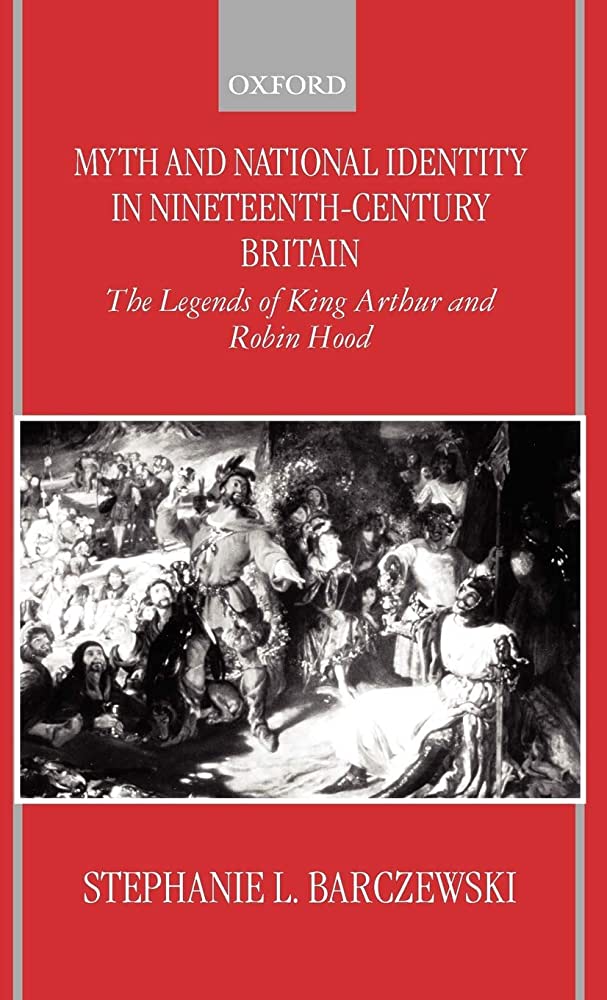
King Arthur and Robin Hood have traditionally been diametrically opposed in their ideological orientation, with Arthur at the pinnacle of the social and political hierarchy and Robin Hood completely outside conventional hierarchical structures. The fact that two such different figures could simultaneously function as British national heroes suggests that nineteenth-century British nationalism did not represent a single set of values and ideas, but rather that it was forced to assimilate a variety of competing points of view.
-
Digital Projects & Grants
Wičhóoyake kiη aglí—They Bring the Stories Back: Connecting Lakota Wild West Performers to Pine Ridge Community, Douglas Seefeldt (2022-present)
I am Co-PI with archivist Tawa Ducheneaux from the Woksape Tipi Library & Archives at Oglala Lakota College on one of the inaugural NHPRC-Mellon Planning Grants for Collaborative Digital Editions in African American, Asian American, Hispanic American, and Native American History and Ethnic Studies. This 2-year planning grant will be the basis for a multi-vocal and multimedia edition that redefines the traditional concept of a scholarly edition by engaging a diverse group of participants and by appealing to a range of audiences. While focusing on Lakota community members who traveled throughout the United States and Europe as performers with Buffalo Bill's Wild West and other similar shows during the late nineteenth and early twentieth centuries, this collaboration seeks to expand, enrich, and reconceive the collection of items located at Woksape Tipi Library & Archives and the Papers of William F. Cody, while working to cultivate the community archive of Pine Ridge that persists in local family histories and traditions. This project offers an opportunity, using digital tools, to compile and center these disparate materials in a single accessible place that is grounded in the Lakota Nation as well as to expand and enrich the archive with objects and stories that are already in the archives, homes, and memories of present-day Lakotas.
Archaeological and Historical Assessment of Fort Rutledge and the Battle of Esseneca, Josh Catalano (2021-2023)
In collaboration with the Eastern Band of Cherokee Indians, the project team is developing an interpretive plan for the site of Fort Rutledge and the Battle of Esseneca. This Battlefield Planning Grant ($133,539) is funded by the National Park Service.
Mapping the Gay Guides, Amanda Regan (2020-present)
Mapping the Gay Guides (MGG) is a digital history project and collaboration between Amanda Regan and Eric Gonzaba (CSU-Fullerton). MGG draws on Bob Damron's Address Book, an early but longstanding travel guide aimed at gay men since the early 1960s. An LGBT equivalent to the African American “green books,” the Damron guides contained lists of bars, bathhouses, cinemas, hotels, advocacy organizations and cruising sites in every U.S. state. MGG seeks to associate geographical coordinates with each location mentioned within the Damron Guides and provide an interface for visualizing and stuyding the growth in LGBTQ sites between 1965 and 2005. Made up of a public-facing and freely available web app as well as a series of digital vignettes that analyze the data using historical context, MGG stands to make a significant contribution to scholars understanding of the ways in which LGBTQ people negotiated and appropriated public space to form community. MGG has received a three-year grant in 2020 from the National Endowment for the Humanities to support the expansion of Mapping the Gay Guides.
Collect Oral Histories Related to Establishment of Freedom Riders National Monument, Birmingham Civil Rights National Monument, and Reconstruction Era National Historic Park, (2020-2022)
As part of this grant, the research team conducted oral history interviews with the individuals responsible for the creation of three national monuments.
The William F. Cody Archive: Documenting the life and times of Buffalo Bill, Douglas Seefeldt (2011)
I am Co-Director of The William F. Cody Archive, a joint project of The Papers of William F. Cody initiative at the Buffalo Bill Center of the West and the Center for Digital Research in the Humanities at the University of Nebraska-Lincoln. Through this digital archive and its associated print publications and digital research platform, researchers and visitors have an unequaled opportunity to see, through the eyes of "Buffalo Bill," the expansion and growth of the American West. Glimpses of attitudes of the time are revealed through Cody's interactions with individuals ranging from statesmen and royalty to noted military and literary figures from both his high-profile trans-Atlantic celebrity career as a showman and in his lesser-known roles as a community founder, businessman, rancher, and investor. In addition to the generosity of private donors, this project has been funded by a number of agencies, including the National Endowment for the Humanities, the Institute of Museum and Library Services, the Wyoming Cultural Trust Fund, the Wyoming Humanities Council, and the Wyoming State Parks and Cultural Resources.
-
Edited Books and Chapters
Reconstruction Beyond 150: Reassessing the New Birth of Freedom, edited by Orville Vernon Burton and J. Brent Morris (2023)
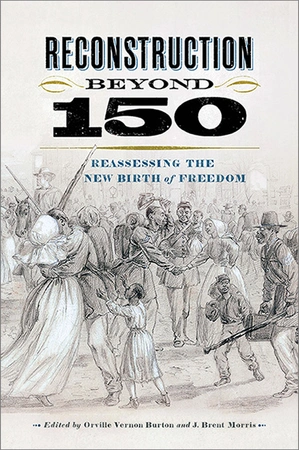
At Reconstruction’s sesquicentennial, a new anthology reflecting the best scholarship.
"Reflexivity and Digital Praxis: Reconstructing Ostia's Networks," in Data Science, Human Science, and Ancient Gods: Conversations in Theory & Method (Forthcoming, 2023)
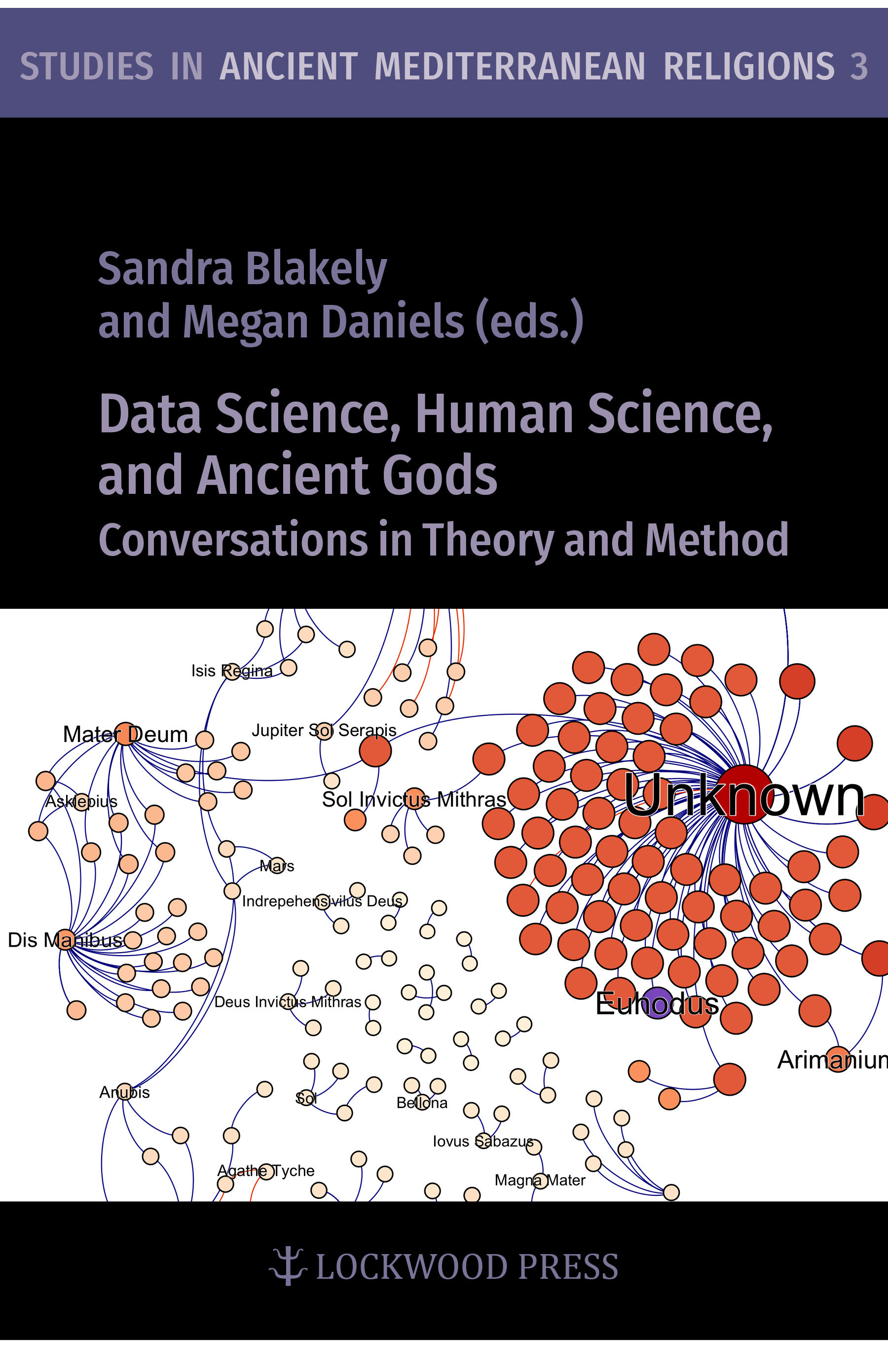
In the chapter, "Reflexivity and Digital Praxis: Reconstructing Ostia's Networks," Kathryn Langenfeld and her co-authors investigate a corpus of Latin inscriptions from the ancient Roman port city of Ostia. Marrying traditional epigraphic and archaeological approaches with GEPHI social network modeling, their study, their findings reinterpret the role of religious cults in shaping the city's social networks.
"Ancient Texts and Sibylline Truths: A Reflection on Forged Documentary Evidence and its Value in the Historia Augusta," in Forgery Beyond Deceit: Fabrication, Value, and the Desire for Ancient Rome (Forthcoming, 2023)
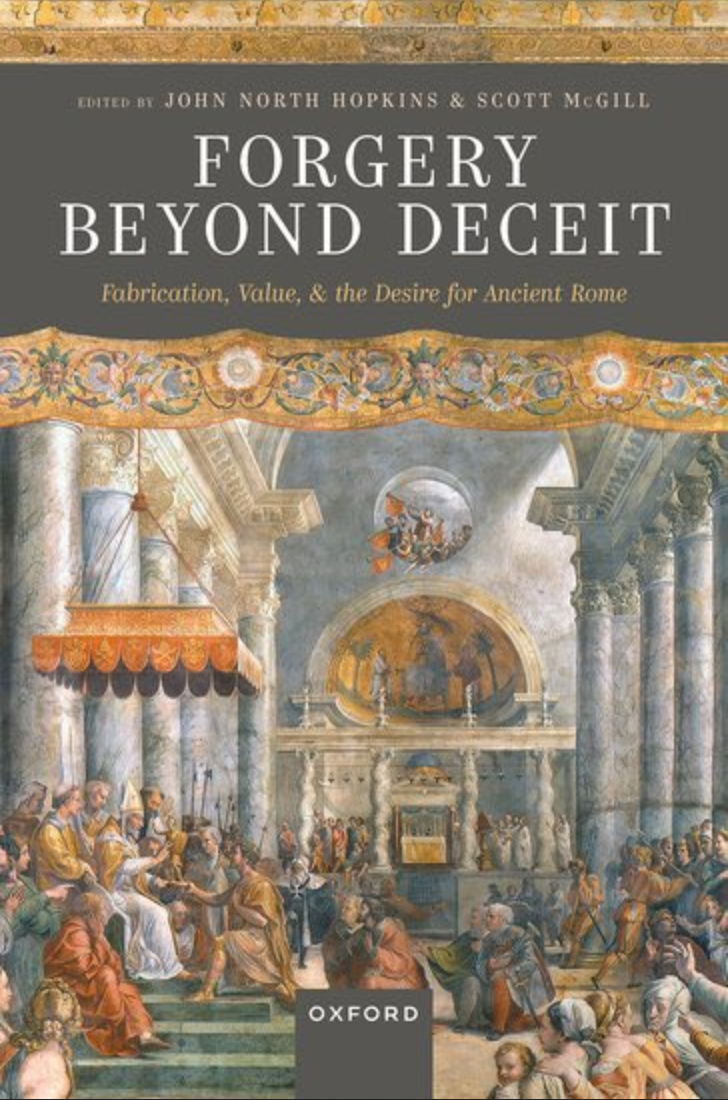
In the chapter, “Ancient Texts and Sibylline Truths: A Reflection on Forged Documentary Evidence and its Value in the Historia Augusta,” Kathryn Langenfeld investigates the value of antiquarian texts and autographic sources in the series of fourth-century imperial biographies known as the Historia Augusta. By elucidating an extended metaphor linking the Historia Augusta's forged documents and the famed book of prophetic texts known as the Sibylline oracles, she considers the blurred definitions of truth, fiction, and forgery in the ancient Roman imagination.
"British Imperial Intelligence and Anticolonial Revolutionaries during and after the Great War," in The Irish Revolution: A Global History
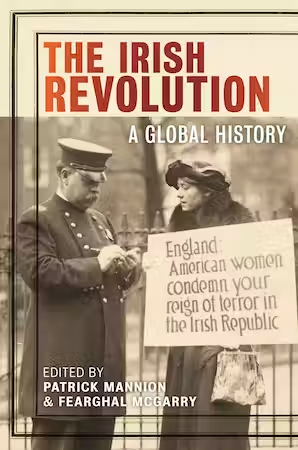
This chapter explores how officers with experience in intelligence work against Indian revolutionaries sought to apply their experience in combatting anticolonial resistance in both North America during the First World War and in Ireland during the 1919-1921 War of Independence. It focuses on intelligence officers and their agents who were Irish (or had Irish connections) and analyzes their successes and failures in opposing nationalist and anticolonial movements during this tumultuous era.
A South Carolina Chronology, edited by J. Brent Morris (2020)
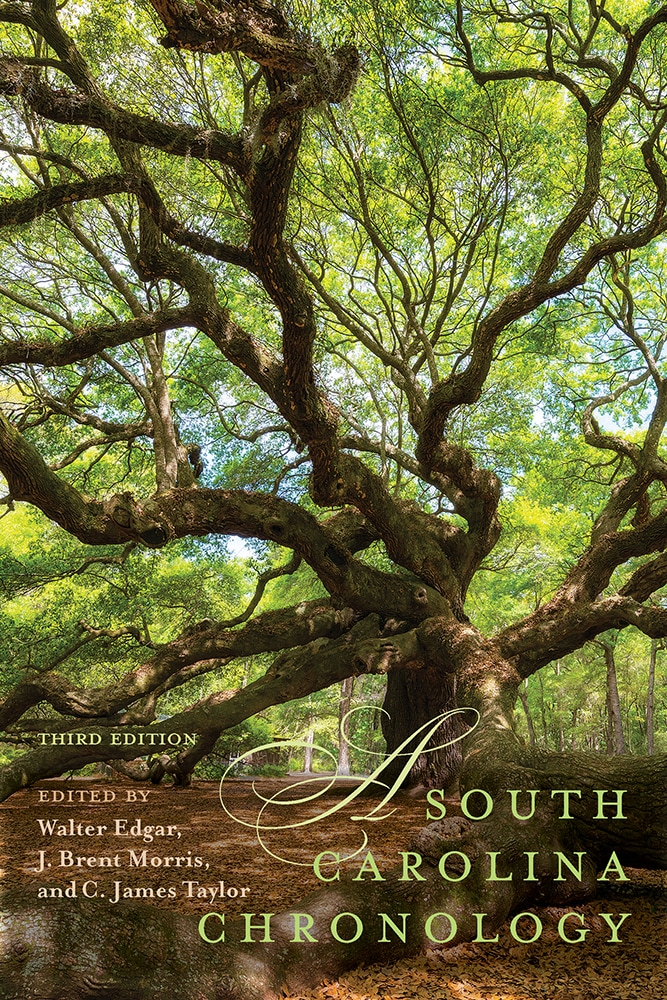
This third edition of A South Carolina Chronology offers a year-by-year chronology of landmark dates and events in South Carolina's recorded history. From the earliest-known migrants to the increasingly complex global society of the early twenty-first century, A South Carolina Chronology offers a solid foundation for understanding the Palmetto State's past.
Yes Lord, I Know the Road: A Documentary History of African Americans in South Carolina 1526-2008, edited by J. Brent Morris (2017)
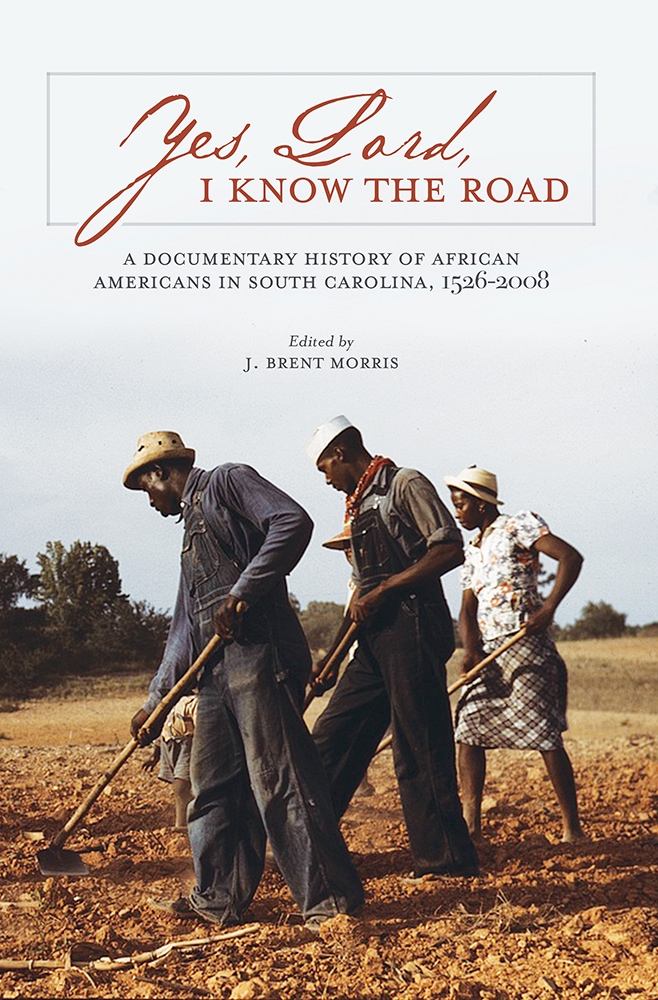
Yes, Lord, I Know the Road is the first comprehensive history of African Americans in the Palmetto State. From the first North American slave rebellion near the mouth of the Pee Dee River in the early sixteenth century to the 2008 state Democratic primary victory of Barack Obama, this book examines the unique struggles and triumphs of African Americans in South Carolina.
"A National Monument" in A Companion to Custer and the Little Bighorn Campaign, Douglas Seefeldt (2015)
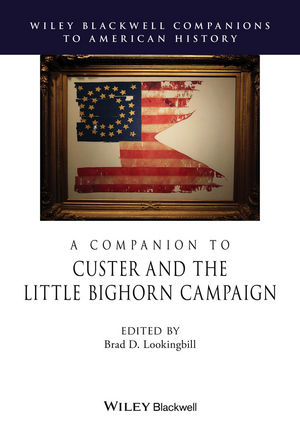
An accessible and authoritative overview of the scholarship that has shaped our understanding of one of the most iconic battles in the history of the American West. The volume combines contributions from an array of respected scholars, historians, and battlefield scientists outlining the political and cultural conditions that laid the foundation for the Centennial Campaign while examining how George Armstrong Custer became its figurehead. Essays also provide a detailed analysis of the battle maneuverings at Little Bighorn, paying special attention to Native American testimony. The volume concludes with a section examining how the Battle of Little Bighorn has been mythologized and its pervading influence on American culture that includes the essay, ”A National Monument,” by Douglas Seefeldt and Jason Heppler.
Across the Continent: Jefferson, Lewis and Clark, and the Making of America, edited by Doug Seefeldt (2005)
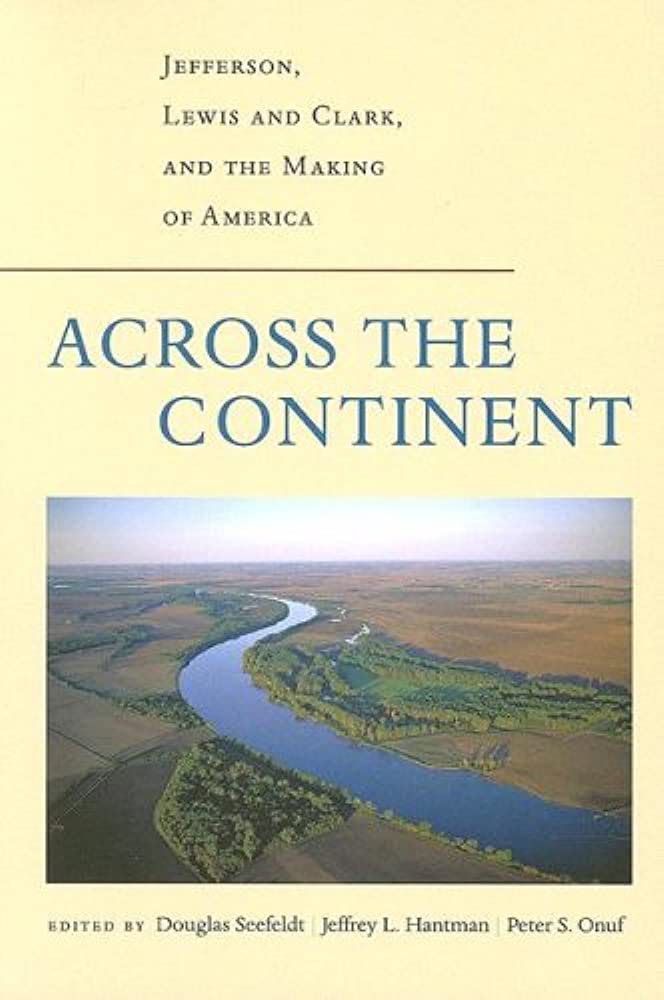
An obscure undertaking in its own time, the Lewis and Clark expedition has grown in the American imagination, acquiring an almost mythic stature. Arriving as the country commemorates the expedition's bicentennial, Across the Continent is not an exercise in demythologizing; rather, it is an examination of the explorers' world and the complicated ways in which it relates to our own. The essays collected here look at the global geopolitics that provided the context for the expedition—and at the interest in science, shared by Jefferson, that not only grew from the expedition but, to an extent, justified its undertaking. Finally, the discussion considers the various legacies of the expedition, in particular its impact on Native Americans, and the current struggle over who will control the narrative of the expansion of the American Empire. Includes the essay "Oñate's Foot: Histories, Landscapes, and Contested Memories in the Southwest," by Douglas Seefeldt.
